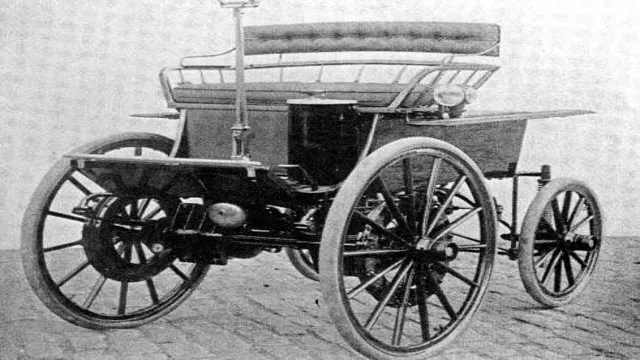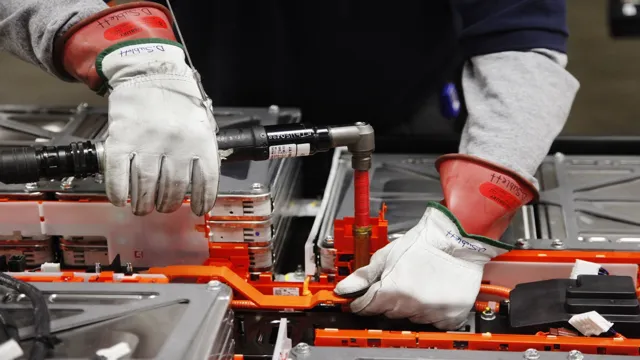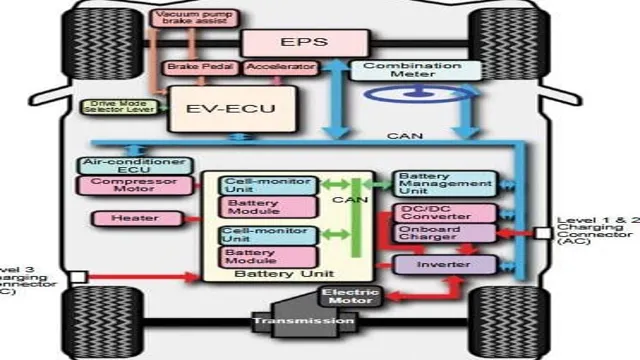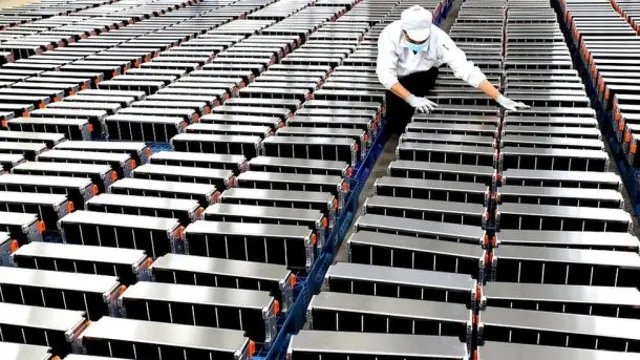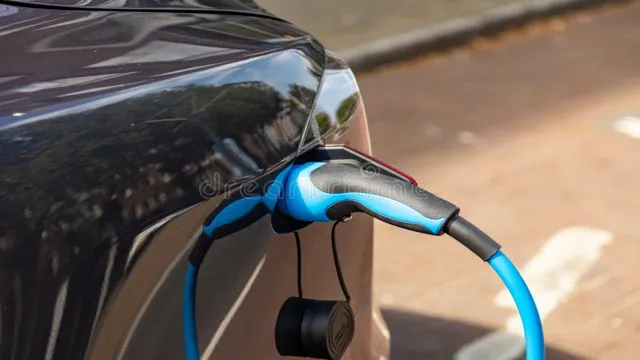The Dark Side of Electric Cars: Exploring the Link between Batteries and Slave Labor
Electric cars have become increasingly popular as society strives to reduce its carbon footprint. But with the rise in demand for electric cars, there comes a darker side: exploiting workers for the materials needed for electric car batteries. The mining and production of materials like lithium, cobalt, and nickel, which are essential in the production of electric car batteries, has raised concerns about worker exploitation, particularly in developing countries.
Although electric cars are seen as a more eco-friendly solution, the ethics behind their production are just as important. The exploitation of workers in mines and factories is a serious problem that requires immediate attention. The hazardous working conditions and low wages received by workers in these industries are a human rights issue that cannot be ignored.
But what can be done to address this issue? Solutions such as ethical sourcing and improved working conditions can go a long way in safeguarding workers’ rights. Developing countries can also be supported by international organizations and companies to ensure fair labor practices are being upheld. Electric cars are a step in the right direction to reduce our environmental impact, but we must also consider the human cost of their production.
It is our responsibility to demand fair labor practices and ethical sourcing in the production of these vehicles. Only by working together can we create a greener future that is both environmentally and socially sustainable.
Background
It’s no secret that electric cars are increasing in popularity as people try to reduce their carbon footprint. What many people don’t realize, however, is that the batteries that power these cars often come at a cost – that of cheap labor. Most of the world’s lithium-ion batteries are sourced from cobalt mines in the Democratic Republic of Congo, where child labor and inhumane working conditions are rampant.
While some companies are starting to take steps to ensure ethical sourcing of the materials used in their batteries, the issue of slave labor in the mining industry is far from resolved. It’s important for consumers to be aware of this issue when making decisions about the sustainability of their transportation choices.
Risks of exploiting slave labor for battery raw materials in electric cars
The electric car revolution has brought with it hopes of a sustainable future, but the reality is not as green as it seems. The production of electric car batteries requires raw materials such as cobalt, lithium, and nickel, which are predominantly found in countries with poor human rights records. The mining of these materials is often associated with exploitative practices such as child labor, debt bondage, and hazardous working conditions.
The risks of such practices cannot be overstated, as they not only perpetuate human rights abuses but also have environmental consequences. For instance, the extraction of cobalt has been linked to soil and water pollution and deforestation. It is time for companies to take responsibility for their supply chains and ensure that they are not contributing to the exploitation of vulnerable communities.
Keywords: electric cars, battery raw materials, slave labor, human rights records, mining, environmental consequences, supply chains.

Slave Labor in Electric Car Battery Supply Chains
Batteries are a crucial component of electric cars, but their production can involve human rights abuses and labor exploitation. Many of the materials used to make electric car batteries, such as cobalt and lithium, are mined in countries with weak labor protections and high levels of poverty. This has led to a situation where workers, including children, are forced to work long hours in dangerous conditions for low wages in order to extract these minerals.
In some cases, workers are even trafficked to work in the mines against their will. Despite increasing scrutiny and calls for reform, companies involved in the electric car industry have been slow to address these issues and take action to ensure that their supply chains are free from slave labor. As consumers, it is important to be aware of these issues and demand that companies take responsibility for the human rights impacts of their products.
Examples of manufacturers using slave labor in battery production
Electric car batteries have become an increasingly popular component in today’s car market. However, with this rise in demand comes concerns about the sources of the materials used in battery production and the labor practices of the manufacturers involved. Several examples of slave labor in electric car battery supply chains exist, including in the Democratic Republic of Congo (DRC).
Children as young as seven years old have been reported to work in cobalt mines in the DRC, where cobalt is a critical material used in batteries. Reports have also surfaced of human rights abuses and dangerous working conditions in battery manufacturing facilities in China. Given the significance of the electric car industry, it is essential to address these issues and ensure that batteries used in electric cars are ethically and sustainably sourced.
Impact on affected communities and human rights
Electric car battery supply chains have come under scrutiny for the inhumane treatment of workers throughout the manufacturing process. Reports have shown that many of the materials used in the batteries, such as cobalt and lithium, are sourced from areas where there are few labor protections. This lack of oversight has led to the exploitation of workers, many of whom are subjected to slave labor and unsafe working conditions.
These workers often receive low pay, work long hours, and are exposed to hazardous materials without adequate protection. The extraction of these materials also has a devastating impact on the environment, particularly in developing countries where regulations are lax. It is crucial that companies take responsibility for their supply chains and ensure that the human rights of workers are protected.
Consumers can also play a role by making informed choices and supporting companies that prioritize ethical and sustainable practices. Only through collective action can we address the systemic issues that underpin the treatment of workers in electric car battery supply chains.
Challenges and Solutions
Batteries for electric cars have been a revolutionary development in the car industry, but it has its own share of challenges. One of the biggest concerns is the labor issue in the production of these batteries. Many of the countries that mine the rare minerals that go into making these batteries have been accused of using slave labor practices.
These countries include the Democratic Republic of Congo, which produces two-thirds of the world’s cobalt, an essential component of the batteries. Companies that employ such practices save money, but it is a severe human rights violation and environmentally unsustainable. To address this issue, some companies have adopted responsible sourcing policies of the minerals, which is verified by independent third-party auditors.
This ensures that ethical standards are adhered to throughout the entire supply chain, starting from mining to battery manufacturing. It is crucial for the industry to invest in responsible sourcing to ensure fair labor, safe working conditions, and environmental sustainability.
Challenges in sourcing ethical and sustainable materials for electric car battery production
As the demand for electric cars continues to grow, there are challenges in sourcing ethical and sustainable materials for the production of car batteries. One of the biggest challenges is the availability of raw materials such as lithium, cobalt and nickel, which are essential for making batteries. These materials are often obtained through mining, which can be harmful to the environment and local communities.
To address this, companies are looking for ways to source these materials responsibly and sustainably. This includes implementing strict standards for mining practices and working with local communities to ensure that their rights are respected. Another challenge is the high cost of these materials, which can make it difficult for smaller companies to compete with larger players.
Despite these challenges, there are solutions that can help to make electric car battery production more sustainable. These include investing in research and development to find alternatives to these materials, increasing recycling efforts, and working collaboratively to establish industry-wide sustainability standards. By taking these steps, we can ensure that the growth of the electric car industry is not only good for the environment, but also for the people who produce them.
Overview of companies taking steps to ensure ethical and sustainable supply chains
One of the most significant challenges for companies looking to ensure ethical and sustainable supply chains is the complexity of global supply chains. It can be difficult for companies to trace where every element of their products comes from, especially when dealing with multiple suppliers and subcontractors. However, there are ways to address this challenge.
One solution is to establish clear and strong supplier codes of conduct that outline expectations and standards for ethical behavior. Regular audits of suppliers can also help ensure compliance with these codes. Additionally, using technology such as blockchain can help track and verify the origin of products and materials throughout the supply chain.
By taking these steps, companies can work towards creating more transparent and responsible supply chains that benefit both their bottom line and the planet.
Conclusion
In conclusion, while electric cars may seem like a step towards a more environmentally conscious future, it is important to acknowledge that the current production process relies heavily on the exploitation of workers in developing countries. We can’t continue to turn a blind eye and pretend that our electric cars are ethical and sustainable while ignoring the labor abuses that take place in the production of their batteries. It’s time to start holding car manufacturers accountable and demanding more transparent and ethical supply chains.
After all, what’s the point of having a cleaner environment if it comes at the cost of someone else’s basic human rights?”
Importance of supporting ethical and sustainable supply chains for electric car batteries
The importance of supporting ethical and sustainable supply chains for electric car batteries cannot be overstated. While electric vehicles offer a more eco-friendly alternative to traditional gasoline-powered cars, their batteries have a significant environmental impact. One of the biggest challenges is the sourcing of critical raw materials like cobalt and lithium, which are often mined in countries with poor working conditions and environmental standards.
To address this issue, companies are increasingly looking at ways to improve transparency and accountability in their supply chains. This involves engaging with suppliers to ensure they are adhering to ethical and sustainability standards, as well as investing in alternative sources of raw materials. By doing so, companies can not only reduce their environmental impact, but also contribute to the economic development of communities and reduce the risk of human rights violations.
FAQs
How are batteries for electric cars produced?
Batteries for electric cars are typically produced using a combination of automated and manual labor. While some companies have committed to ethical and sustainable production practices, others have been criticized for their use of slave labor in the supply chain.
What are some examples of companies that use slave labor in the production of electric car batteries?
There have been reports of slave labor being used in the production of batteries for electric cars by companies such as Tesla, Apple, and Samsung.
What steps are being taken to ensure ethical production of batteries for electric cars?
Some companies are taking steps to ensure ethical production of batteries for electric cars, such as implementing supply chain audits and working with third-party organizations to monitor labor practices.
Are there alternative materials being researched for use in electric car batteries to avoid the use of slave labor?
Yes, there are alternative materials being researched, such as solid-state batteries and zinc-air batteries, that do not rely on the same minerals and materials traditionally used in electric car batteries and may have less environmental and ethical concerns.

